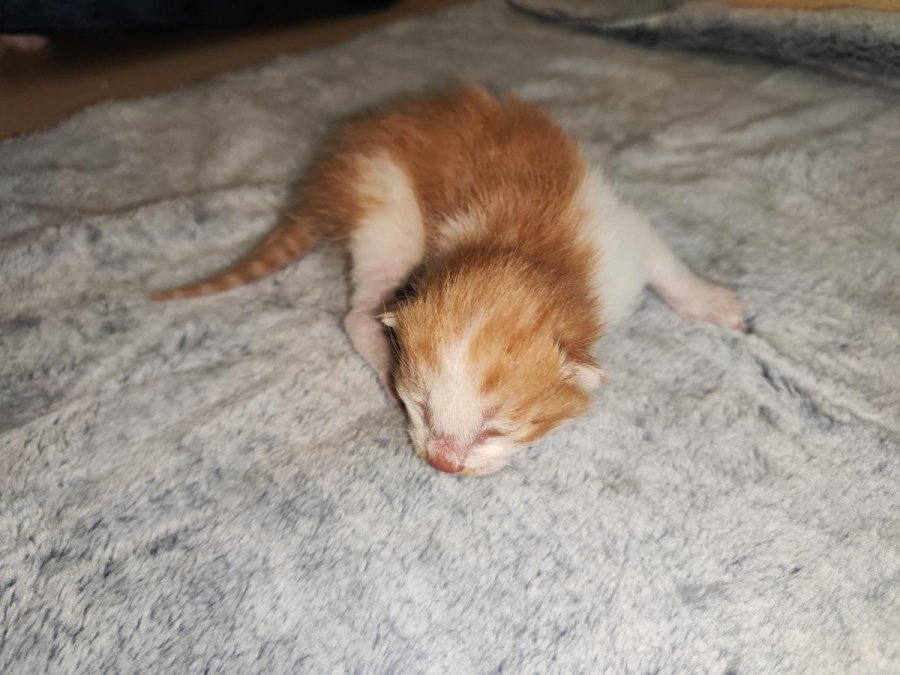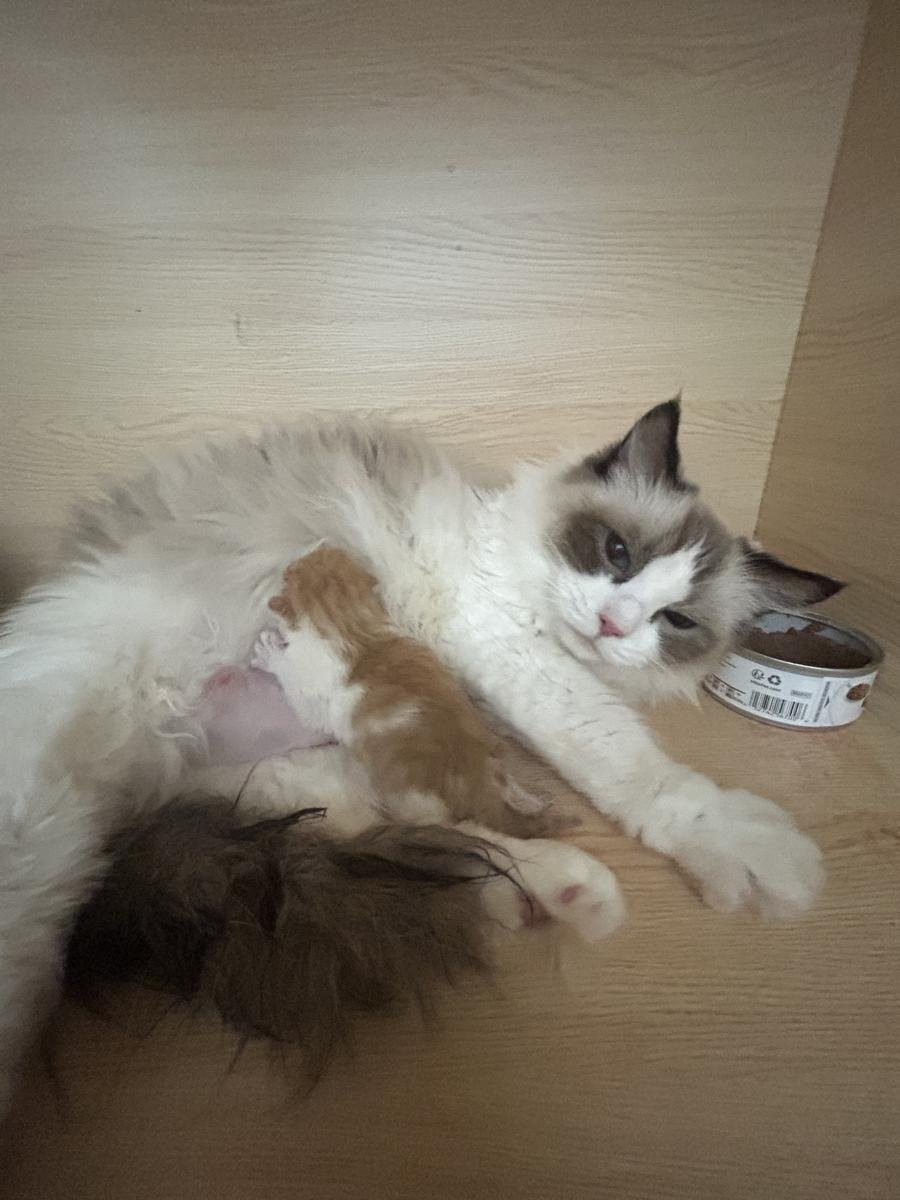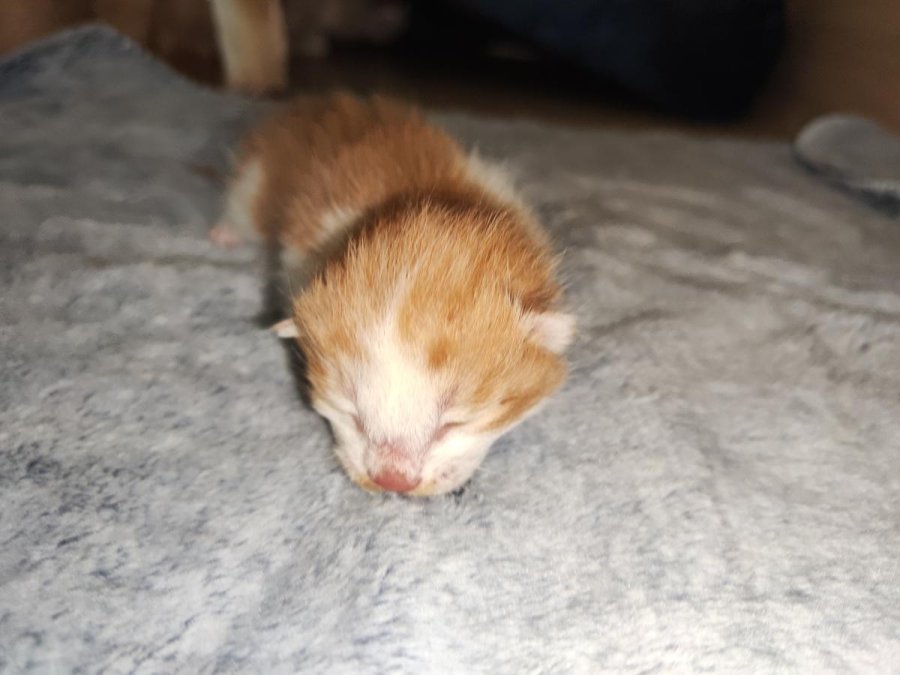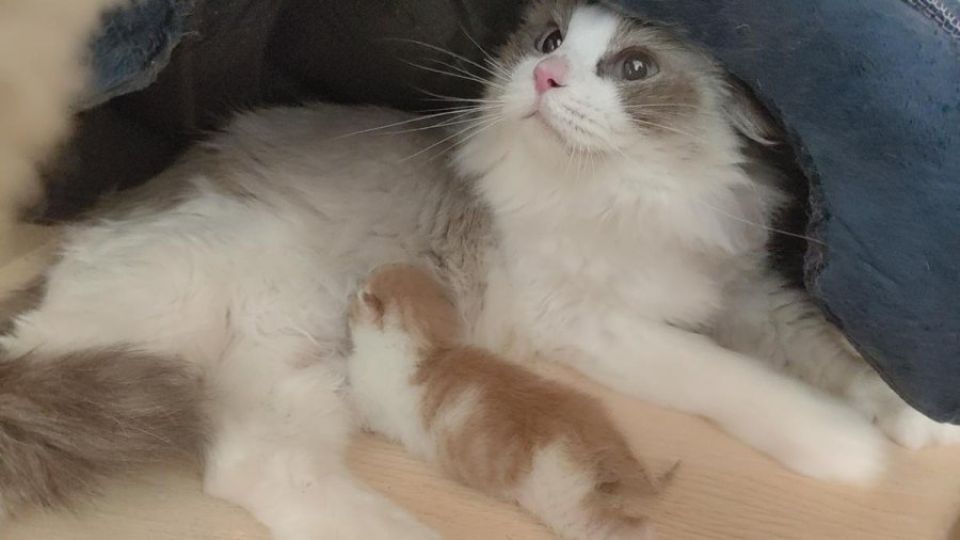November 22, 2023
BEIJING – China’s first cat clone from somatic cells using domestic equipment and reagents was born on Sunday in Qingdao, Shandong province, proving that the country has established a self-sufficient cloning process, according to researchers.
The cat, an orange male weighing 141 grams, was birthed by a surrogate female after a 69-day pregnancy.
Researchers from Qingdao Agricultural University partnered with Qingdao PanGene Technologies Co on the project.
Zhao Minghui, an associate professor in the university’s college of life sciences, said that previous animal cloning processes had relied heavily on imports from the United States and facilities provided by Japanese and European suppliers.
“The birth of the new cat proved that China has a complete industrial chain in the field of animal cloning,” Zhao said.
The research, which began in 2020, faced challenges involving imported reagents during pig cloning attempts. Over time, the team successfully transitioned to domestic reagents, with additional support from a partner in Guangzhou, Guangdong province, to enhance their experimental facilities.

China’s first cat cloned from somatic cells using domestically developed equipment and reagents was born on Sunday in Qingdao, Shandong province. [Photo provided to chinadaily.com.cn]
“Cloning cat somatic cells demanded more resources in terms of facilities, reagents and materials compared with pig cells,” Zhao said.
Yuan Bao, a professor at Jilin University and president of Jinlin Association for Laboratory Animal Sciences, said the success in cloning a cat was not only a big breakthrough in Chinese animal cloning technology but also represented advancement in high-end equipment manufacturing, precision machining and chemical engineering in China.
The achievement will boost confidence in domestic equipment, reagents and material suppliers and help generate more high-end homegrown products in the biomedical sector, Yuan said.
He said these will be more widely applied and will enhance China’s position and influence globally.

A newborn cloned kitten drinks milk from its surrogate mother. [Photo provided to chinadaily.com.cn]

China’s first cat cloned from somatic cells using domestically developed equipment and reagents was born on Sunday in Qingdao, Shandong province. [Photo provided to chinadaily.com.cn]


